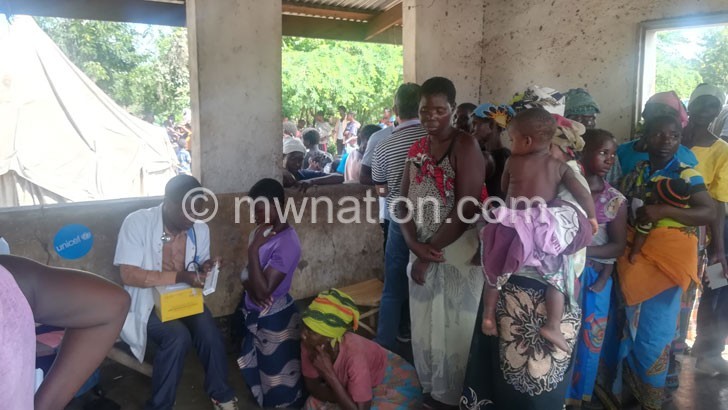New technology to help detect disease outbreak
Researchers from the University of Pernambuco in Brazil are in the country to explore use of technology to predict occurrence of diseases such as cholera, bilharzia and malaria in the aftermath of the floods.
The researchers, who last Thursday visited Bitilinyo Camp in Nsanje District, are gathering data from drone and satellite images, biological sensors and diagnostic information from mobile clinics in flood victim camps to aid them in predicting any potential occurrence.

One of the researchers, Evonio de Barros Campelo, said the innovation is important for timely response to diseases.
He said: “These diseases are dangerous but after flooding they become even more aggressive. We have a very similar environment and socio-economic conditions in several parts of Brazil.
“It is important to reasonably predict when and where the diseases will hit to plan and execute timely responses not only in the emergency period but also for continuous disease surveillance.”
The idea of the innovation came about after the United Nations International Children’s Fund (Unicef) partnered with the university following a visit by Ministry of Health (MoH) officials to the university in January this year.
On his part, Unicef Malawi representative Johannes Wedenig said the information to be generated can inform MoH interventions.
“This information can inform the Ministry of Health’s programming to fight these diseases. This is particularly important for Malawi because of its vulnerability to floods and drought which create conditions for disease outbreaks,” he said.
Bitilinyo Camp chairperson Shadreck Nyakhola said the centre has so far not registered any cholera cases.
Currently, the country has registered 13 cases of cholera, with seven of them being reported in the district.





